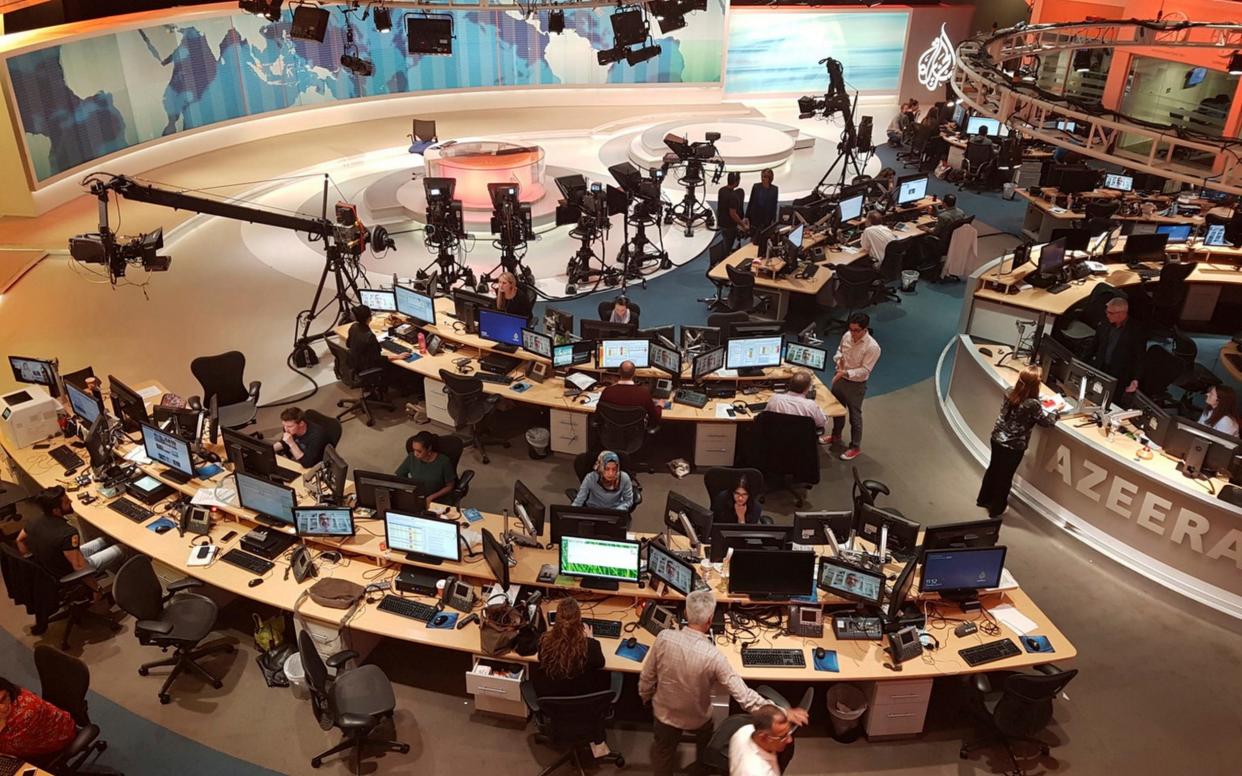Israeli spyware likely to proliferate in Mid East amid Al Jazeera journalists hack, says report

Israeli spyware may be increasingly deployed by Middle East governments following recent normalisation agreements with Israel, a researcher that tracks surveillance companies has said after his group claimed to have uncovered hacks of dozens of Al Jazeera journalists.
Malware likely created by Israeli spy tech company NSO Group targeted 36 reporters from the Qatari state-owned broadcaster and a London-based journalist for another Qatari-owned network, according to a report published Sunday by researchers at the University of Toronto’s Citizen Lab.
The cyber-attack was notable for using “zero-click” software, which infected targeted cell phones without any interaction from the user, allowing the operatives to access all information on the device and to activate the microphone to eavesdrop on conversations.
Almost all iPhone devices not operating Apple’s latest iOS 14 version, which was released in September, are believed to be vulnerable to the code.
The report’s authors concluded with “medium confidence” that the governments of Saudi Arabia and the United Arab Emirates, both users of NSO Group’s Pegasus spyware, were behind the attacks.
With Bahrain and the UAE recently establishing diplomatic relations with Israel, and Israeli Prime Minister Benjamin Netanyahu reportedly secretly visiting Saudi Arabia to meet Crown Prince Mohammed bin Salman, the use of Israeli spyware in the region may now accelerate.
Bill Marczak, a senior researcher at Citizen Lab, told the Associated Press that clients for similar Israeli software could include a “much wider range of government agencies and customers across the Gulf.”
There is no suggestion that Herzliya-basedNSO Group was complicit in the hack. The company cast doubt on the Citizen Lab report in a statement, saying “not everything associated to us is, in reality, a use of our technology,” which it says is only intended to be used to counter terrorism and crime.
The Saudi and UAE governments did not respond to requests for comment but the two countries have long called for the closing of Al Jazeera and since June 2017 have enforced a diplomatic and economic blockade on Qatar, accusing Doha of supporting terrorism and being too close to Iran.
The two countries, alongside Bahrain and Egypt, have made shutting down the Qatari channel a core precondition for restoring relations. Qatar rejects the claims and says the conditions for lifting the blockade are an attack on its sovereignty.
The aim of the cyberattacks on journalists is likely to obtain compromising personal information for blackmailing or shaming the victim and their employers, experts say, noting that previous targets include journalists critical of Saudi Arabia.
In April, intimate photos of Lebanese Al Jazeera anchor Ghada Oueiss were leaked online, with Ms Oueiss saying she was a victim of a hacking operation aimed at undermining her character and career.
In a lawsuit filed in the US last week, Ms Oueiss accused Saudi Crown Prince Mohammed bin Salman and Abu Dhabi’s Crown Prince Mohammed bin Zayed of responsibility alongside other Saudi and UAE officials.
The 36 Al Jazeera employees Citizen Lab identified as having been targeted constitute the large majority of about 50 journalists known to have been infected with Pegasus spyware.
Marc Owen Jones, a Hamad Bin Khalifa University professor and expert on digital authoritarianism in the Middle East, said that pointed to “the UAE's or Saudi's inexorable obsession with Al Jazeera, and frivolous use of spyware”.
“The psychological consequences and fear of harm for those targeted in hack and leak operations is clear,” he said.
“I think the prospect of blackmail in particular is incredibly dangerous though to freedom of speech. Who knows the untold impact, especially in the way of censorship, or perhaps even becoming an informant, that the threat of blackmail might have one someone.”

